Productivity + creativity is about mind management, not time management (a thread)
"There's only 24 hours in a day," people say.
What they think that means: You should get as much as you can from each of those hours.
What that actually means: Time management is squeezing blood from a stone. There's a limit to the time you can save.
What they think that means: You should get as much as you can from each of those hours.
What that actually means: Time management is squeezing blood from a stone. There's a limit to the time you can save.
We're entering the Creative Age.
According to @kaifulee, AI and automation are poised to take forty- to fifty-percent of jobs in the next couple decades.
But not all jobs will disappear at the same rate. Jobs that require creativity that will be out of reach for AI.
According to @kaifulee, AI and automation are poised to take forty- to fifty-percent of jobs in the next couple decades.
But not all jobs will disappear at the same rate. Jobs that require creativity that will be out of reach for AI.
We know thanks to the work of neuroscientists @JohnKounios & Mark Beeman that insightful thinking is a unique type of thinking:
-promoted by positive mood & relaxation
-a fragile state: hard to get into, easy to get out of
Here's what an "aha" moment looks like.
-promoted by positive mood & relaxation
-a fragile state: hard to get into, easy to get out of
Here's what an "aha" moment looks like.
We each have our "peak" and "off-peak" times of day.
Counterintuitively, the science shows you're most creative during your off-peak time of day.
If you're groggy in the morning, don't reach for coffee first thing: That grogginess is a creative gift.
Counterintuitively, the science shows you're most creative during your off-peak time of day.
If you're groggy in the morning, don't reach for coffee first thing: That grogginess is a creative gift.
A great idea doesn't mean your idea is ready to ship. There are four stages of creativity:
1. Preparation: Learn about the problem
2. Incubation: Let it sink in
3. Illumination: Have the idea
4. Verification: Get it ready to ship
Respect these stages, don't get blocked.
1. Preparation: Learn about the problem
2. Incubation: Let it sink in
3. Illumination: Have the idea
4. Verification: Get it ready to ship
Respect these stages, don't get blocked.
Not all hours are equal.
Some hours are great for having ideas – other hours are great for executing on those ideas.
@danariely and I noticed working on Timeful (Google acq'd.) there aren't 24 hours in the day – there's an hour here or there for each type of thinking.
Some hours are great for having ideas – other hours are great for executing on those ideas.
@danariely and I noticed working on Timeful (Google acq'd.) there aren't 24 hours in the day – there's an hour here or there for each type of thinking.
Here's what the late, great, Anders Ericsson saw when he looked at the practice schedules of the very best violinists.
Intense practice in the morning. Sporadic practice the rest of the day.
Intense practice in the morning. Sporadic practice the rest of the day.
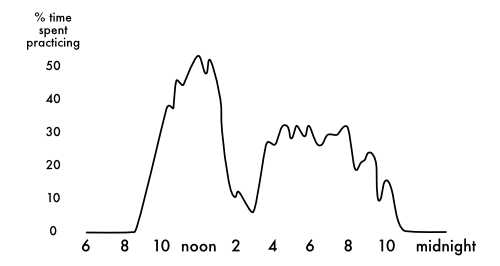
You can work with cycles in your world to propel your ideas forward.
Days, weeks, seasons, and years can be harnessed to cycle through the Four Stages of Creativity.
Some examples:


Days, weeks, seasons, and years can be harnessed to cycle through the Four Stages of Creativity.
Some examples:
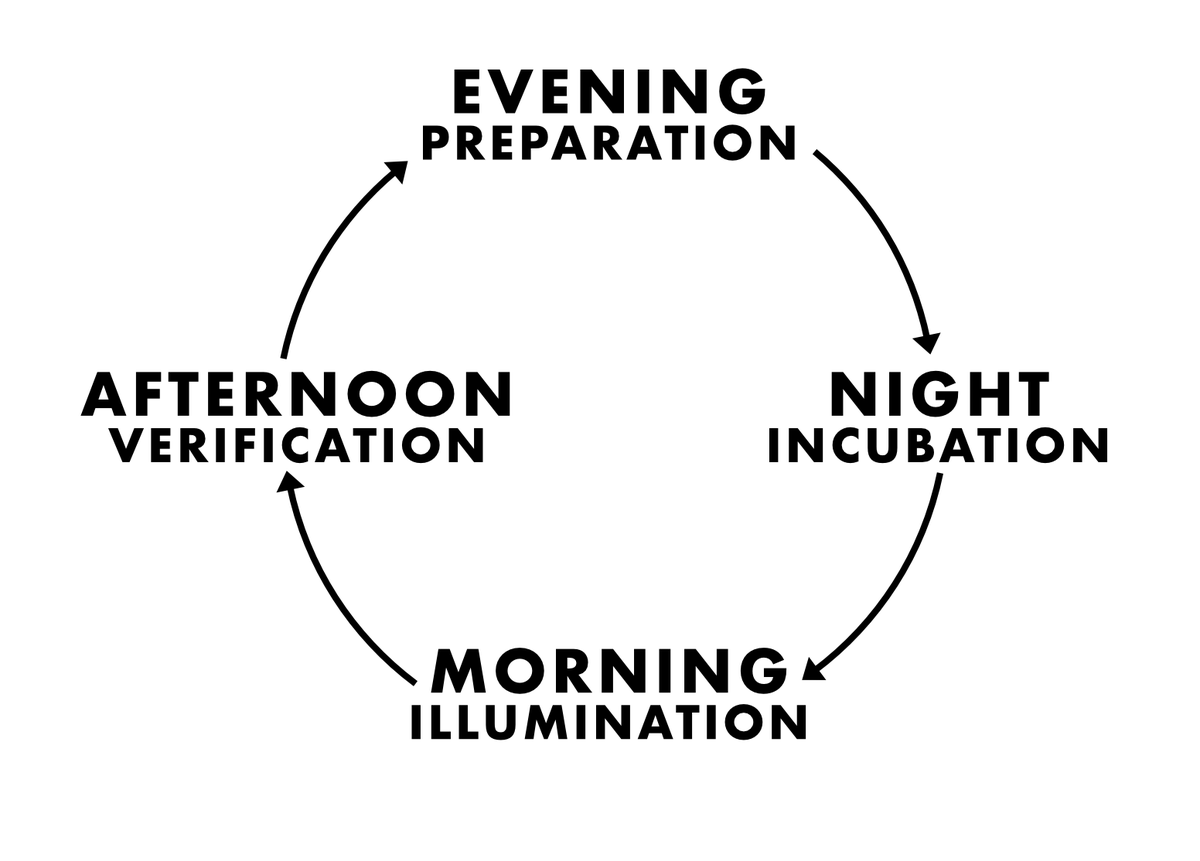
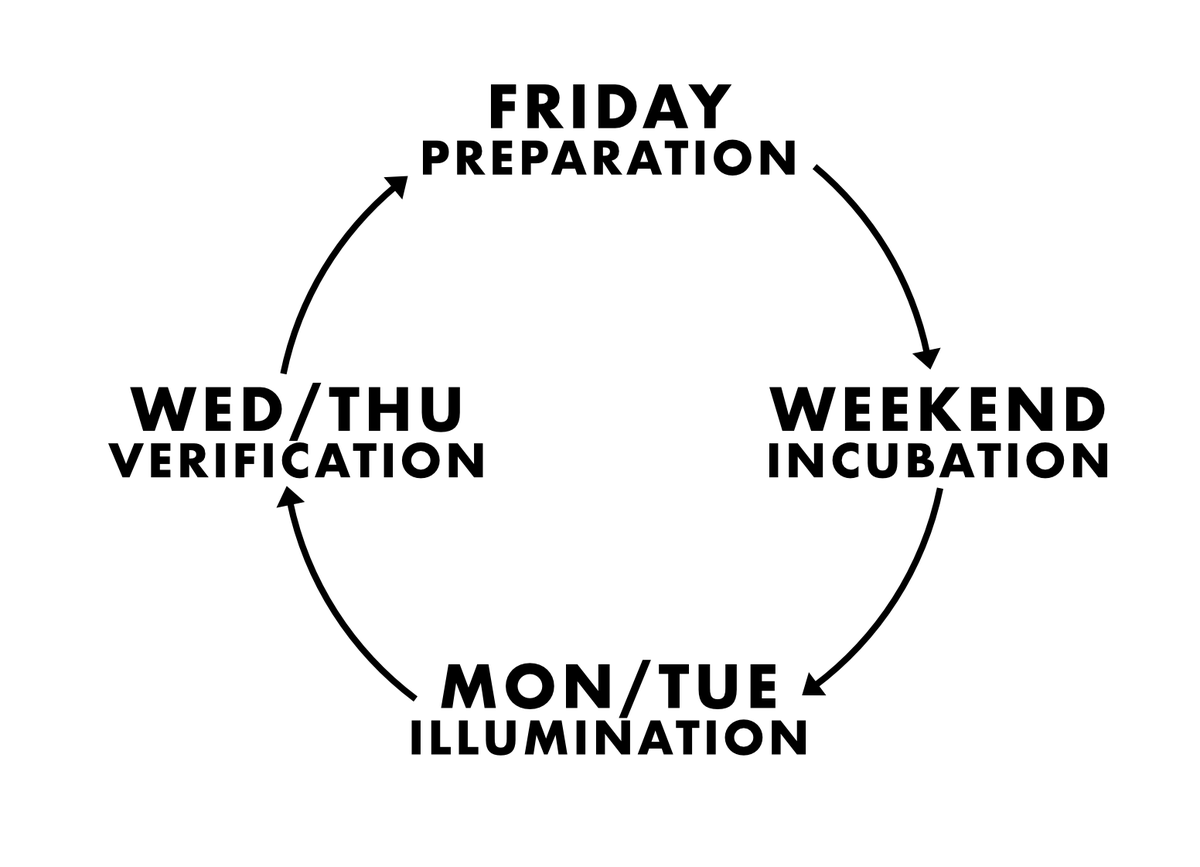
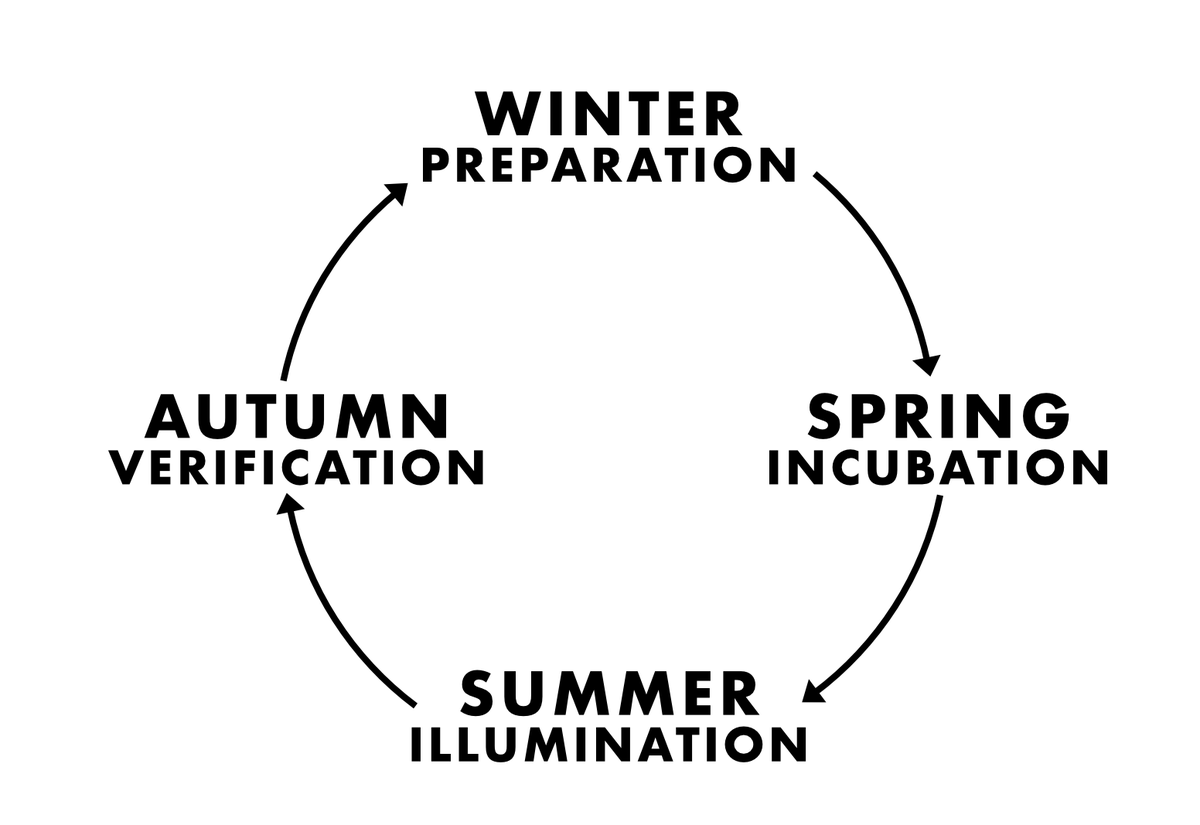
Creative work is best tackled by mental state.
I've identified seven mental states of creative work, and I organize my week by those states.
Like this:
I've identified seven mental states of creative work, and I organize my week by those states.
Like this:

Instead of cramming work into time, work according to stages of creative thinking, and mental state.
I have systems I've built to go through these stages and ride the waves of my mental state.
Here's how I work on my podcast, throughout the year, the month, the week:


I have systems I've built to go through these stages and ride the waves of my mental state.
Here's how I work on my podcast, throughout the year, the month, the week:

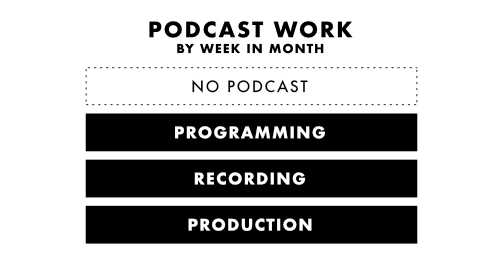

Organize tasks not by project but by mental state.
Who cares what project the task is in? What matters is you're mentally able to do the task.
Here's what my labels and tasks look like in @todoist

Who cares what project the task is in? What matters is you're mentally able to do the task.
Here's what my labels and tasks look like in @todoist
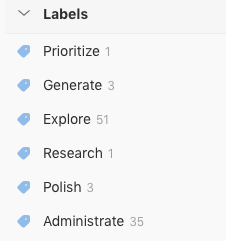
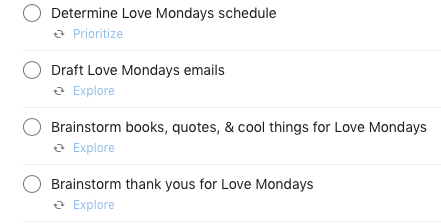
The systems I use to produce my podcast, my weekly newsletter, and write books, make special use of incubation.
What used to be an hour-long, grueling task, is now spaced into three 5-minute bursts. Incubation does the work for me.
What used to be an hour-long, grueling task, is now spaced into three 5-minute bursts. Incubation does the work for me.
In a chaotic world, your systems have to be antifragile.
When you work according to mental state and have the right slack in your systems, chaos doesn't throw you off-balance.
Instead, chaos presents creative opportunities: Ideas you can store for when you need them.
When you work according to mental state and have the right slack in your systems, chaos doesn't throw you off-balance.
Instead, chaos presents creative opportunities: Ideas you can store for when you need them.
If you want to know more, read my book, Mind Management, Not Time Management.
It's a decade in the making and it will show you how to be productive when creativity matters. It launches today!
amazon.com/dp/B08DQGLPSN?…
It's a decade in the making and it will show you how to be productive when creativity matters. It launches today!
amazon.com/dp/B08DQGLPSN?…
If you enjoyed this thread, check out my latest tweet storm: How to do your best thinking when you're not thinking...
https://twitter.com/kadavy/status/1321844340667330561
• • •
Missing some Tweet in this thread? You can try to
force a refresh


















